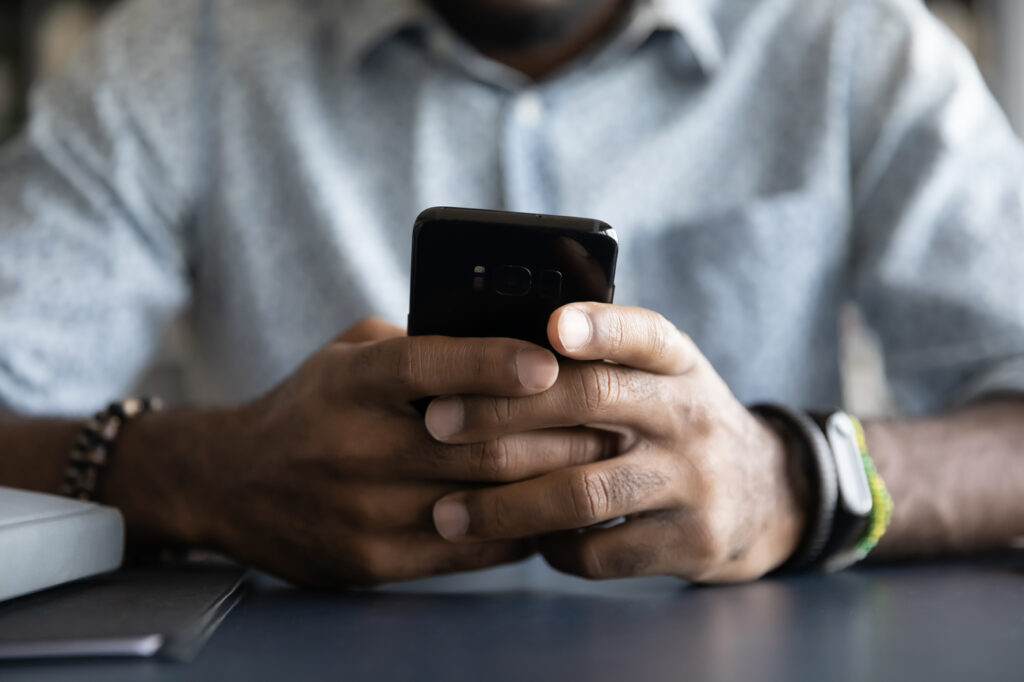Last week, I attended the Canadian Collaborative Mental Health Care Conference in Ottawa, Canada. One of the sessions was about digital solutions and e-health options. Since 2016, the Mental Health Commission of Canada and the Canadian Institute of Health Research (CIHR) have been looking into how to best evaluate the plethora of apps (this year, there are more than twenty thousand mental health apps to choose from, with more being launched every day).
The American Psychological Association reports that the current mental health crisis, along with the rise in online service usage, has fueled the growth of mental health apps. Both nationally and internationally, there are increasing concerns about user privacy risks and the lack of evidence supporting the effectiveness of these apps.
Mental health mobile applications have the potential to enhance access to mental health and wellness services, particularly for underserved populations and younger generations who favor the immediacy of online tools. While some apps have demonstrated mental health benefits by overcoming barriers such as cost, geography, and stigma, not all apps are effective or safe, and some pose significant privacy issues.
Choosing the right mental health app can be challenging. Currently, there is a lack of guidance on choosing wisely from the thousands of mental health apps without clear evidence of safety, efficacy, and user protection like privacy, non-harmful language, and vetted approaches. Also, a mental health app is NOT a substitute for proven beneficial tools like sleep, nutrition, managing substances, movement, positive social interactions, proven talk-therapeutic interventions, and multi-disciplinary relevant pharmacotherapy.
But what about all those “best of” lists? Static app rating systems are unreliable when choosing mental health apps, as apps frequently change their privacy settings, features, and functionality, and these ratings are open-source, meaning anyone can make a rating, including the app itself. This makes it challenging for users, particularly vulnerable or high-risk populations, to navigate and assess apps effectively.
It might be worth noting that the likelihood of an app meeting all its promoted and promised benefits is low. Mental health apps focus heavily on user engagement and a drive to increase in-app sales rather than scientific backing. As Chiauzzi et al. (2019, JMIR Mental Health) reported, while commercial developers prioritize keeping users interested, mental health researchers stress safety and effectiveness; a thorough review spanning three thousand apps across Android, Apple, and Microsoft platforms highlighted that a mere eight were grounded in evidence.
This disparity underscores the challenge: while significant interest in using mobile apps for mental health support exists, many apps fail to meet crucial user needs. Essential features like simple use, personalized feedback and emergency support are often lacking, contributing to low engagement and adherence rates. Moreover, limited evidence supports their short-, mid-, or long-term effectiveness, prompting a call for more robust development and research to create effective and user-friendly mental health management solutions.
Countries worldwide are investing time and energy in creating assessment frameworks to accredit and regulate these applications. In the meantime, what can individuals do to mitigate the potential risks of using an online tool to support/manage their mental health symptoms?
Based on a literature search of global assessment frameworks, here’s a checklist to help you assess an app’s value and effectiveness and ensure you choose the best and safest options for your well-being:
Top Ten Checklist for Evaluating Mental Health Apps
- Effectiveness: Is the app’s effectiveness backed by clinical trials or peer-reviewed studies?
- Clinical Claims: Are claims about reducing stress or anxiety (or other diagnoses/symptoms) supported by evidence and expert opinions?
- Usability: Is the app user-friendly, intuitive, and engaging for consistent use? Is there a free trial period?
- User Desirability: Are there positive user reviews and ratings on app stores and independent review sites that go beyond aesthetics? Is there a free trial period?
- Security and Privacy: Does the app have clear privacy policies, robust security measures, and user control over data? Does it use easy-to-find common language to explain these policies?
- Regular Updates: Is the app regularly updated to indicate ongoing support and improvement beyond coding fixes and de-bugging?
- Risk and Credibility: Does the app balance privacy, security, risks, and clinical safety effectively? How do you know?
- Vulnerable Populations: Are there specific checks and guidance for apps targeting vulnerable populations and minors?
- Accessibility Features: Does the app differentiate between device accessibility options and specialized features?
- Cultural Sensitivity: Is the app culturally appropriate and inclusive for different demographics or marginalized populations? Is there a feedback mechanism in place?
Additional factors to consider include the app’s functionality, interoperability, supported platforms, price transparency, inclusion, evidence base, gender responsiveness, user-centred design, risk-based evaluation, innovation-friendly approach, transparency and fairness, adherence to ethical guidelines, international alignment, customization options, and available support and resources. Most are research-informed, not evidence-based (alluding to a more scientifically rigorous evaluation).
Ok, but HOW does a consumer do this, especially while in the throes of sub-optimal mental health? First, much of this information is not readily (if at all) available to the consumer. Second, during a mental health challenge, our ability to parse through the network of small print in the “I agree to” section of apps is much reduced. Third, apps are notoriously shiny, colourful, and promissory, designed to promise better outcomes and keep you engaged. When you are struggling, any panacea looks helpful. Fourth, it precludes the necessity to connect with a live human either online, by phone, or in person. Fifth, these apps may not provide vetted education, use non-stigmatizing language and use evidence-based approaches. When a person does not experience any improvement in their mental health, they might believe it’s their fault (not the app) and further spiral downward.
Perhaps a more straightforward test is to ask yourself:
- What problem am I looking to solve with this app? Am I looking for knowledge/education? Tracking symptoms? Assessment? Community? Distraction? Validation? Entertainment?
- What other apps might I already have that would help my mental health goals? Music, calendars, timers, podcasts, exercise trackers, YouTube, ride-sharing or grocery delivery apps…how might better use of my existing apps support my agency and engagement in my world, making life easier?
- Does my interaction with the app make me less stressed or more stressed?
- Is it easy to use and understand?
- Is it worth investing my resources (time, money, attention)?
- Does it require me to disclose personal information that, if shared, might infringe on my privacy rights or make me uncomfortable? How would I feel if this data was sold/shared with other apps?
- Are there other non-app ways to achieve the same outcomes? Paper-based journaling, calling a helpline, joining a peer group?
Navigating mental health is complicated. We all exist on a dynamic mental health continuum, and our experiences are nuanced and personal. There is a tremendous opportunity to leverage technology to optimize our mental health. And, we can all learn to make more informed decisions about adding a mental health app to our toolkits by better understanding the benefits and risks.
___
References and suggested reading:
https://www.ncbi.nlm.nih.gov/pmc/articles/PMC8558599/
https://www.psychiatry.org/psychiatrists/practice/mental-health-apps/the-app-evaluation-model



